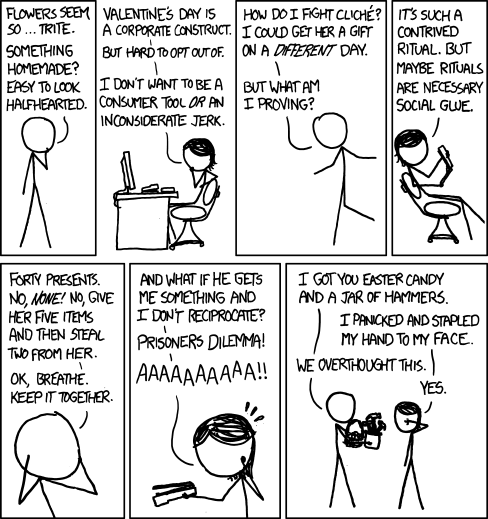Imagine two countries. In country 1, 55% of the households are "working households", and have an income after tax of around £100,000. The other 45% of the households don't need to do paid work - they are variously looking after children, retired, volunteering for charities and so on. Due to generous welfare, they have an income after tax of £40,000, which is still plenty to live on. They could get jobs if they want to, but have decided not to for this part of their life. Life expectancy in country 1 is in the mid-80s. Crime is negligible.
Country 2 is ruled by a small, fabulously rich elite, who plunder the natural resources of the country and exploit the workers. They earn in the region of £1M each or more. The other 98% of the country are living around the bread line. The government are "fair" in their oppression though, so none of the workers is much better or worse off than any other. Life expectancy among the workers is 35 years, because they have to work down mines from the age of 6. Most adults are malnourished; most teenagers are orphans.
Which of those countries has more poverty? Well, according to the definition used by the British government, country 1 has 45% poverty, and country 2 has 0%. That is because they use the stupid Marxist definition of poverty that someone is poor if their household has less than 60% of the national median income.
Why does this matter? Because we should care far more about the problem of poverty in country 2 than in country 1. Because I am concerned for those who are genuinely poor, but not for those who are only "poor" because of bad definitions. By the government's definition, I've been poor, but I haven't had to go without food, water or shelter. Our efforts for relieving poverty shouldn't go towards redressing the shape of the income distribution, but towards helping those who need it. And what that looks like might be the subject of another post.
